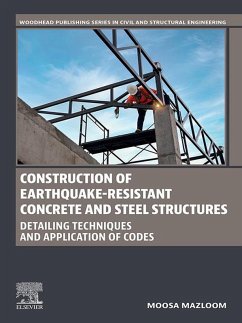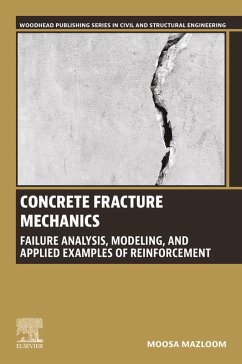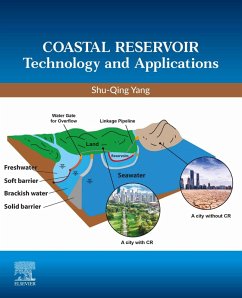
Environmental Design Guidelines for Low Crested Coastal Structures (eBook, ePUB)
Versandkostenfrei!
Sofort per Download lieferbar
138,95 €
inkl. MwSt.
Weitere Ausgaben:

PAYBACK Punkte
69 °P sammeln!
The effect of manmade activities is primarily local but can extend far away from the location of intervention. This underlines the importance of establishing coastal zone management plans covering large stretches of coastlines. In recent years, interest in Low Crested Structures (coastal defense structures with a low-crest) has been growing together with awareness of the sensitivity to environmental impacts produced by coastal defenses. The relation between wave climate, beach erosion, beach defence means, habitat changes and beach value, which clearly exists based on EC research results, sugg...
The effect of manmade activities is primarily local but can extend far away from the location of intervention. This underlines the importance of establishing coastal zone management plans covering large stretches of coastlines. In recent years, interest in Low Crested Structures (coastal defense structures with a low-crest) has been growing together with awareness of the sensitivity to environmental impacts produced by coastal defenses. The relation between wave climate, beach erosion, beach defence means, habitat changes and beach value, which clearly exists based on EC research results, suggests the necessity of an integrated approach when designing coastal protection schemes. In accordance with this need, the present design guidelines cover structure stability and construction problems, hydro and morphodynamic effects, environmental effects (colonisation of the structure and water quality), societal and economic impacts (recreational benefits, swimming safety, beach quality). Environmental Design Guidelines for Low Crested Coastal Structures is specifically dedicated to Low Crested Structures, and provides methodological tools both for the engineering design of structures and for the prediction of performance and environmental impacts of such structures. A briefing of current best practice for local and national planning authorities, statutory agencies and other stakeholders in the coastal zone is also covered. Presented in a generic way, this book is appropriate throughout the European Union, taking into account current European Commission policy and directives for the promotion of sustainable development and integrated coastal zone management. - Fills the gap between engineering and ecology in coastal defense planning - Shows the reader how to perform an integrated design of coastal defense schemes - Presents latest insights on hydro-morphodynamics induced by structures - Provides directly applicable tools for the design of low crested structures - Highlights socio-economic perspectives in coastal defense design
Dieser Download kann aus rechtlichen Gründen nur mit Rechnungsadresse in A, B, BG, CY, CZ, D, DK, EW, E, FIN, F, GR, HR, H, IRL, I, LT, L, LR, M, NL, PL, P, R, S, SLO, SK ausgeliefert werden.













